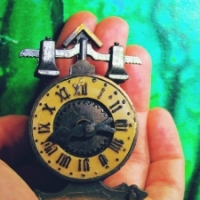Don't Just Work Longer—Work Smarter

People who work long hours assume they're also working hard. Often, they are—but that doesn't mean they're working smart. If you have a lot to do, you want to work smart—not just work a lot.
What do you do if you have a manager who believes the myth that working longer hours automatically means you're working better? Run an experiment and gather some data. It’s difficult to argue with numbers.
Run two forty-hour workweeks. Have all the employees agree to work no more than forty hours a week. Police yourselves. Measure your output in terms of features and count the equivalent of story-points. You also can measure your fault feedback ratio—look at the defect data from the bug-tracking system and measure the number of bad fixes to the total number of fixes.
After those two weeks are up, run two weeks working the number of hours the manager would like employees to work. This can be any number of hours, but during this two-week run, everyone must work the same number. Measure your story-points and your fault feedback ratio.
You can try to do another experiment with thirty hours each week, but I have found that it's difficult to get people to leave at thirty hours. Most people tend to have too much work to accomplish in only thirty hours—although some think that workweek length would be more beneficial. You can try an experiment with people working thirty-five hours each week instead if you'd like, but you must police yourselves to leave on time. Also make sure to measure your story points and fault feedback ratio.
Now, compare your results, recognizing that fault feedback ratio is a lagging indicator, especially if you work in two-week iterations. If you work in kanban or flow, use cumulative flow and see if your average time to complete a feature goes up or down depending on the time you spend at work. Track your fault feedback ratio.
Your data will tell you more than your gut will. You want evidence for your beliefs.
Even if you're capable of working harder and longer hours, remember that our brains get tired. Even if we move around and provide our bodies with oxygen, water, and a little food now and then, it’s not enough. Our brains need a break.
Most people have their best ideas in the shower, in their dreams, while talking with others—basically, while not working. There’s a reason for that. There’s a reason why after I draft an article, I let it sit for a while. If I let my subconscious work on it and I’m fresh when I return, I can do a much better job.
Don’t just work longer. Work smarter.

